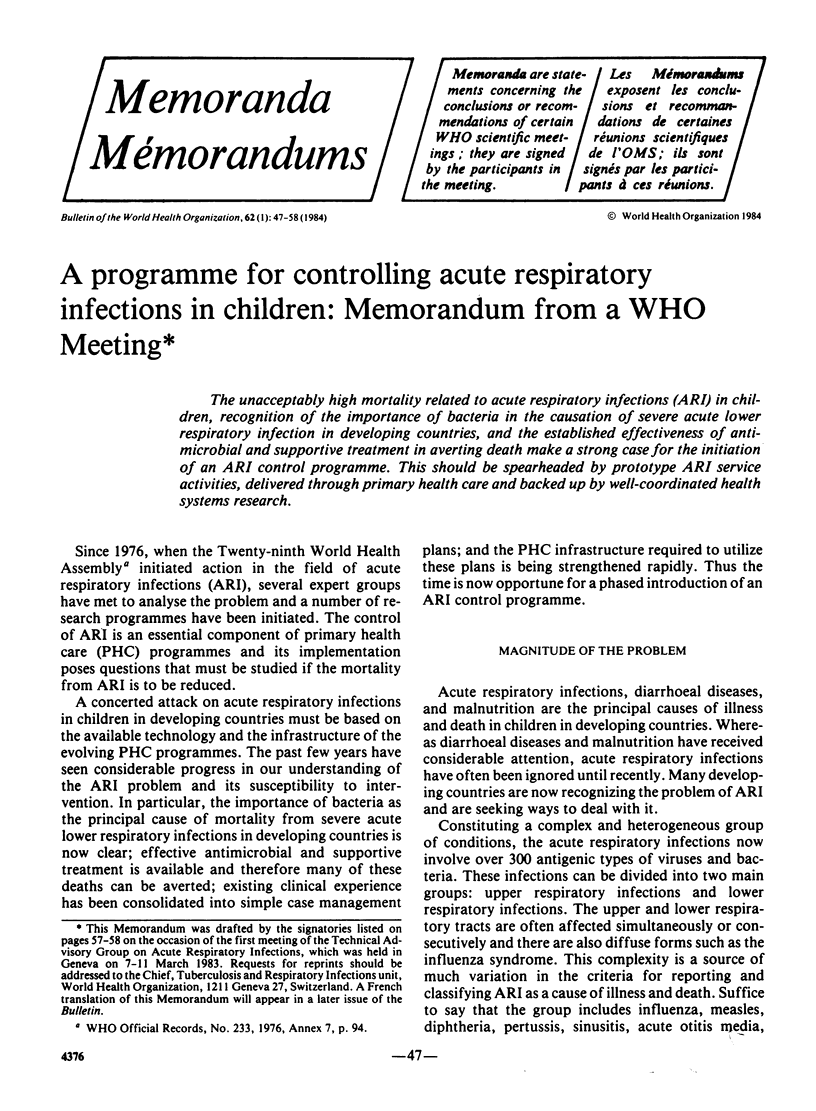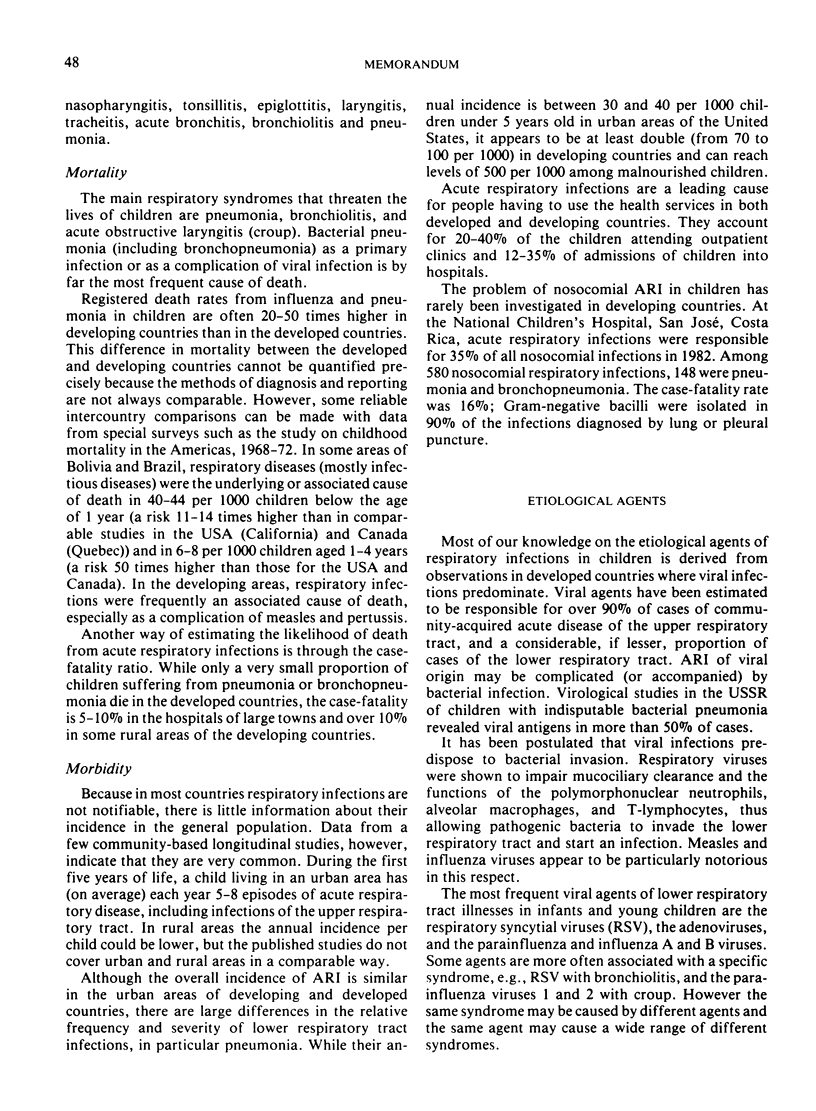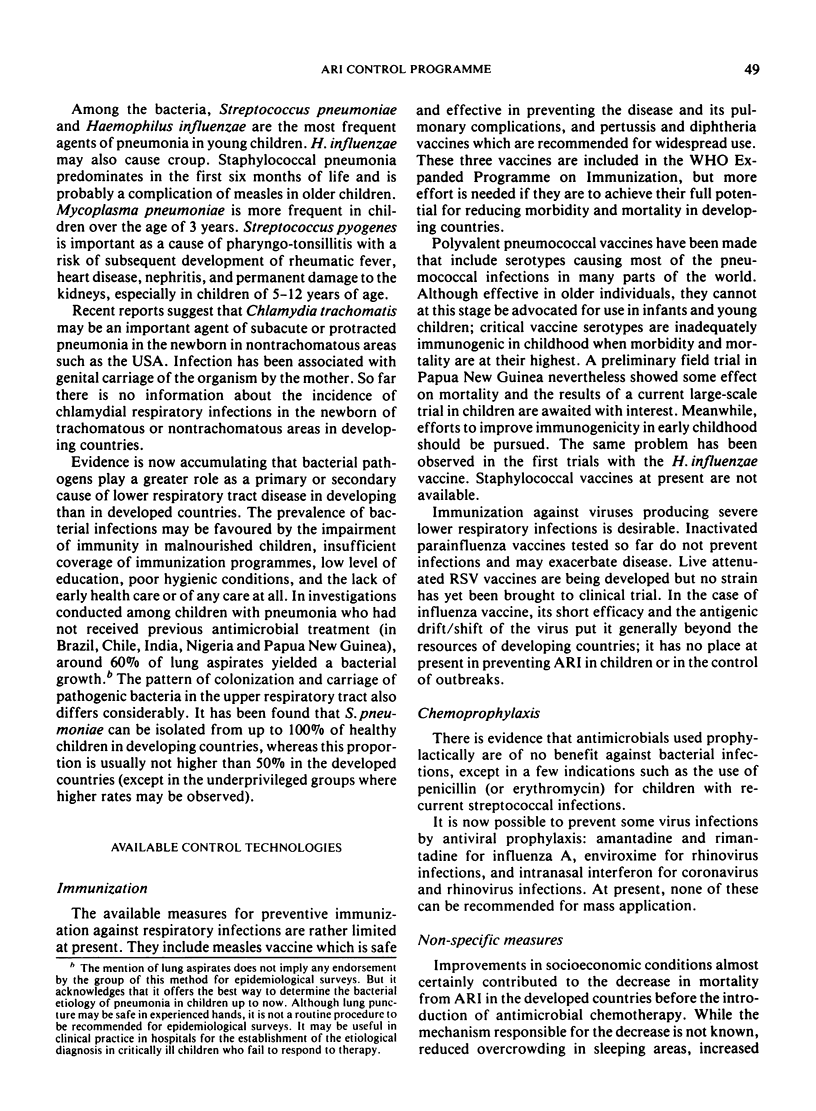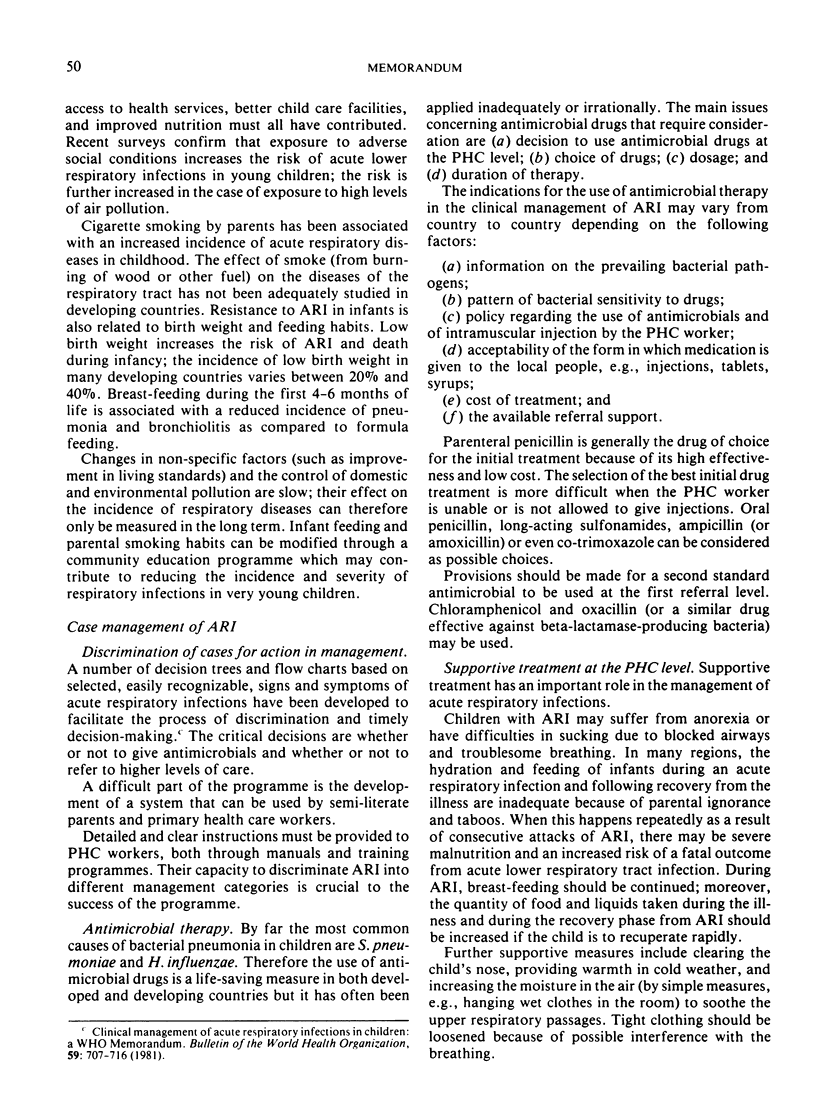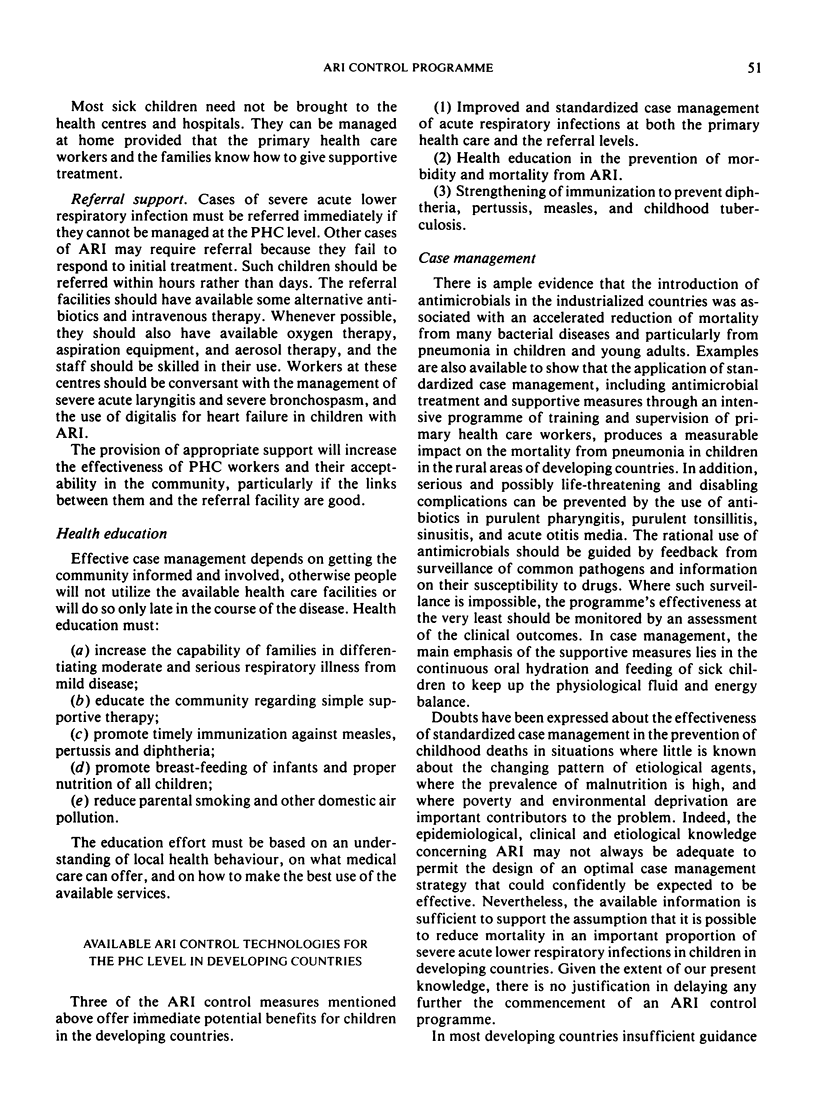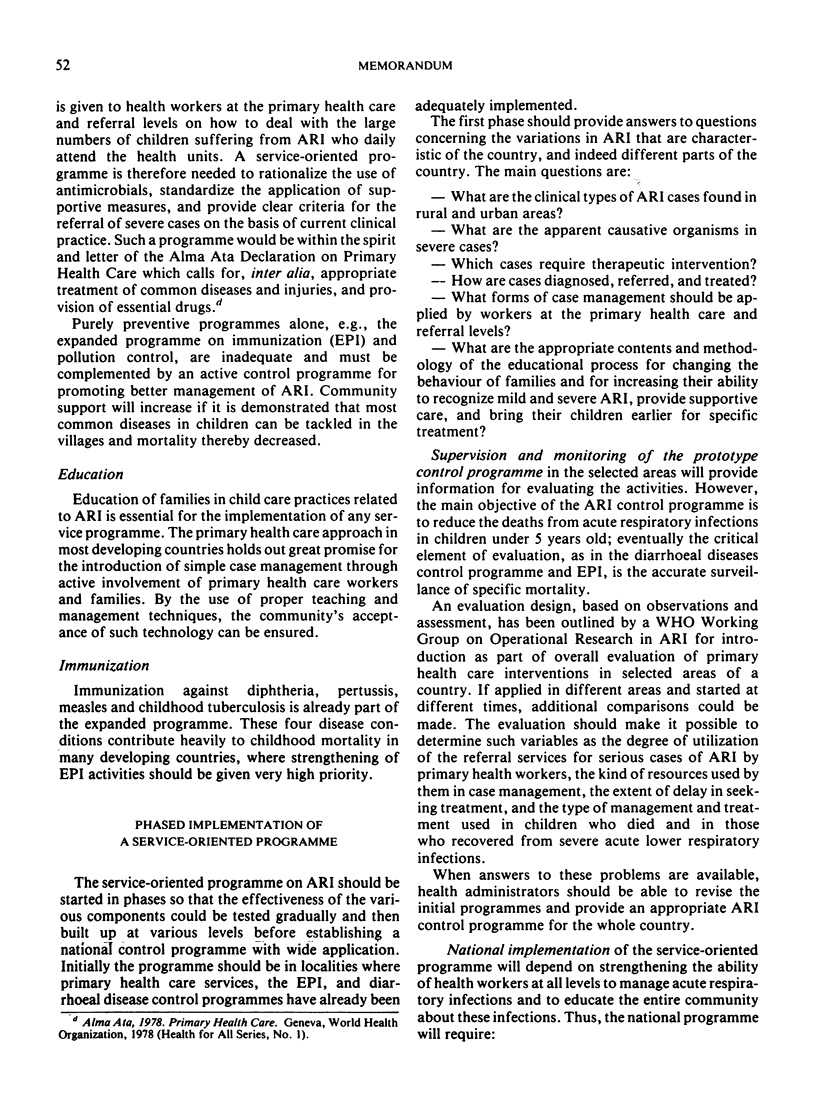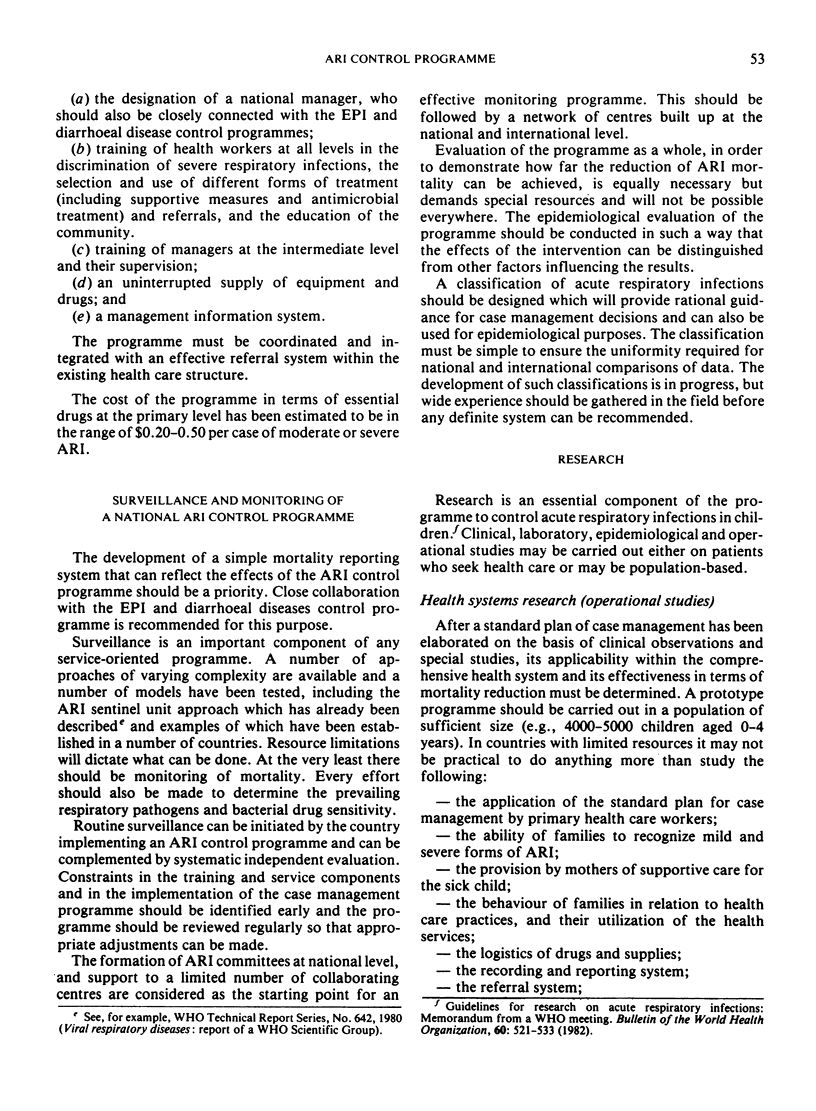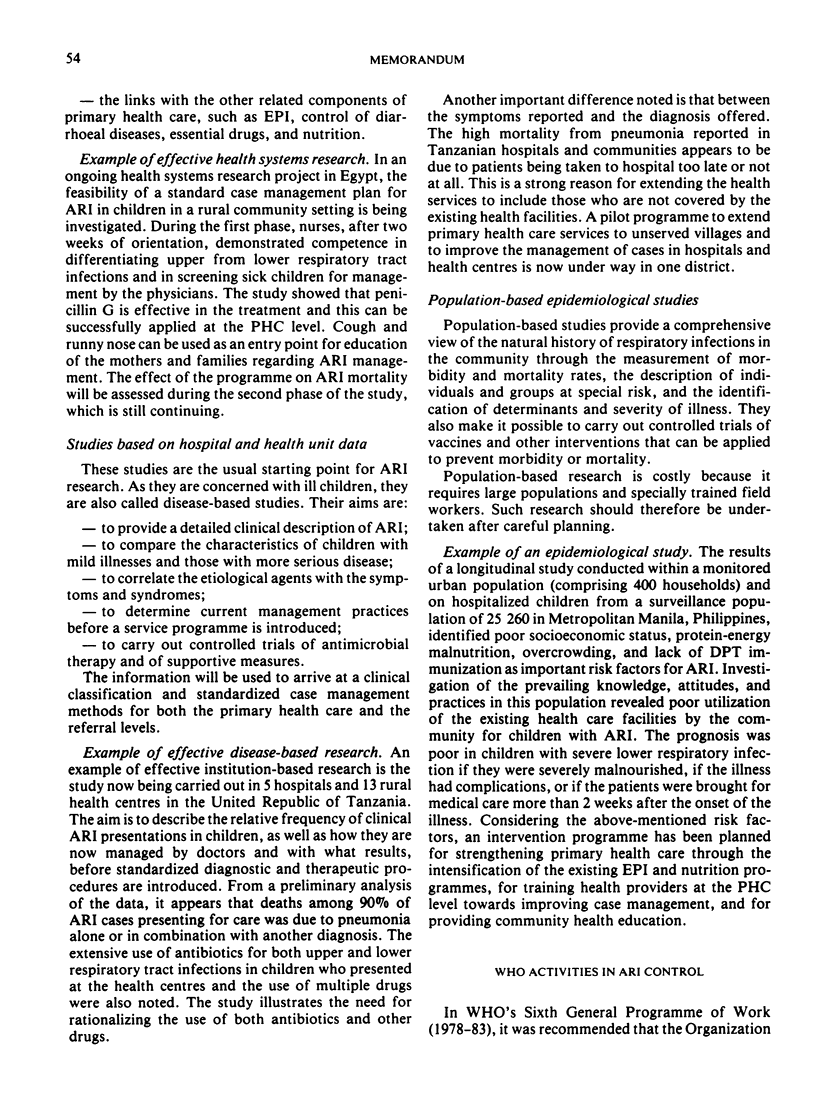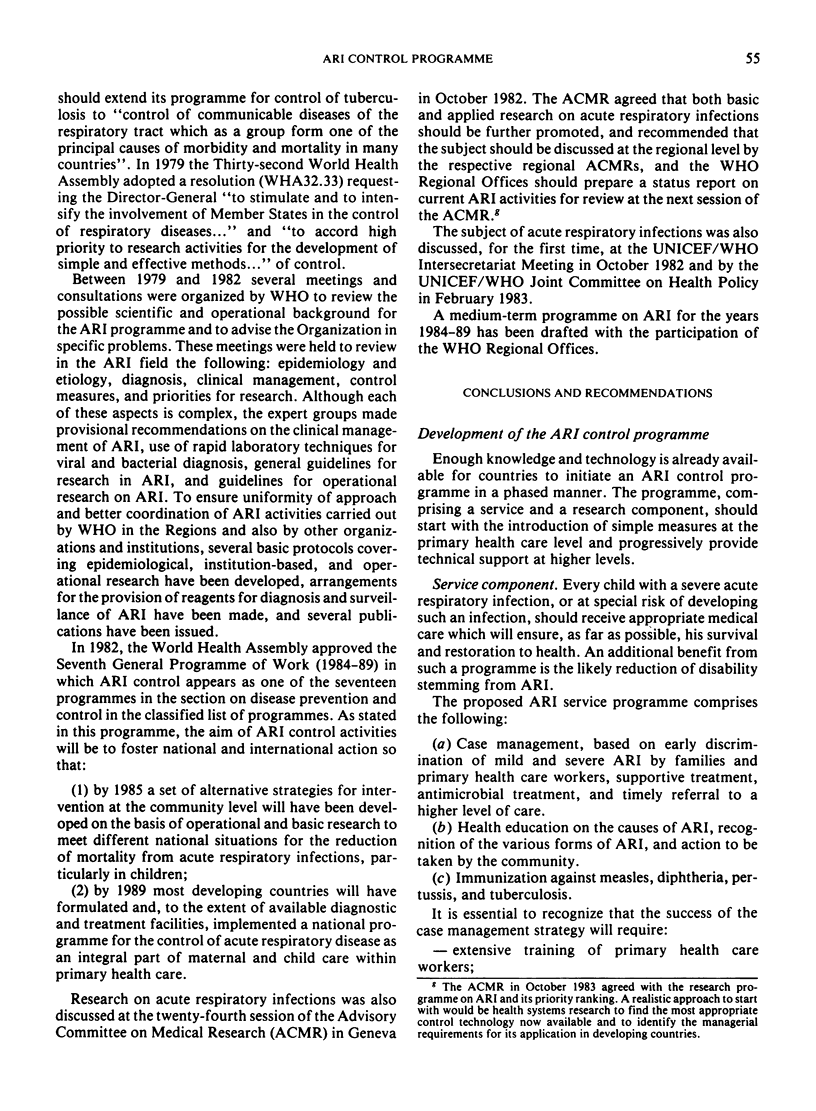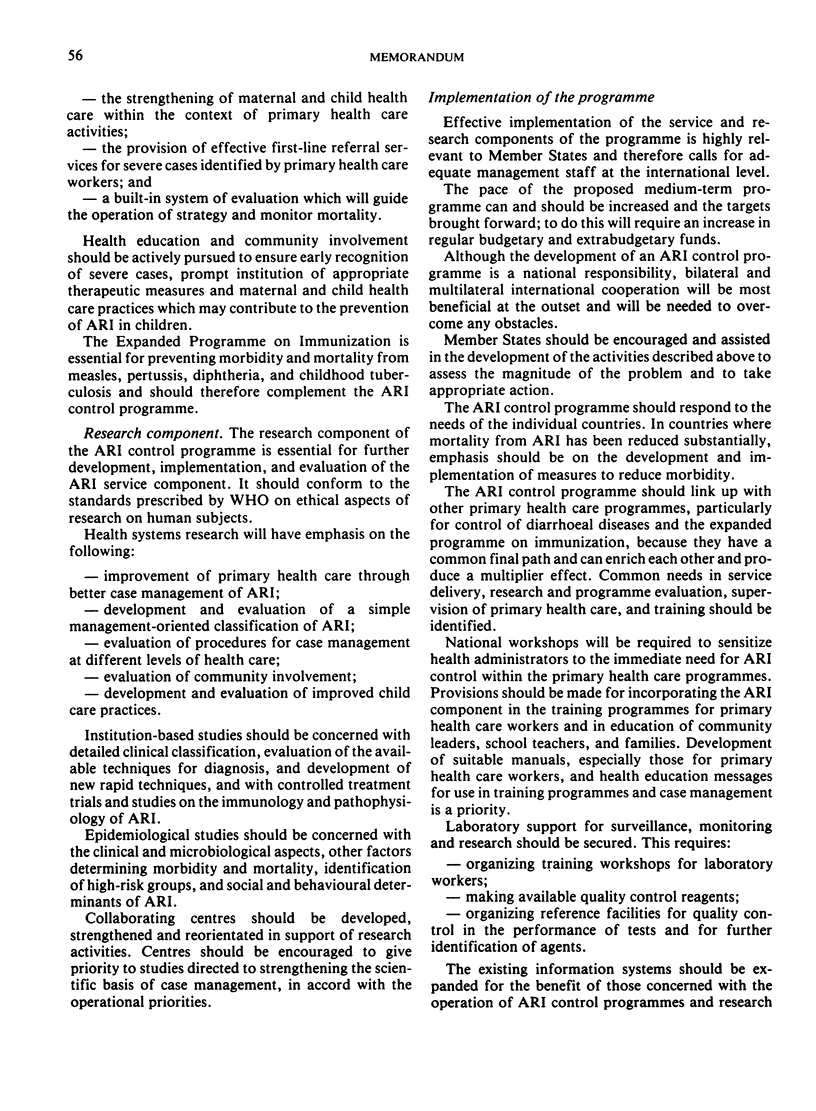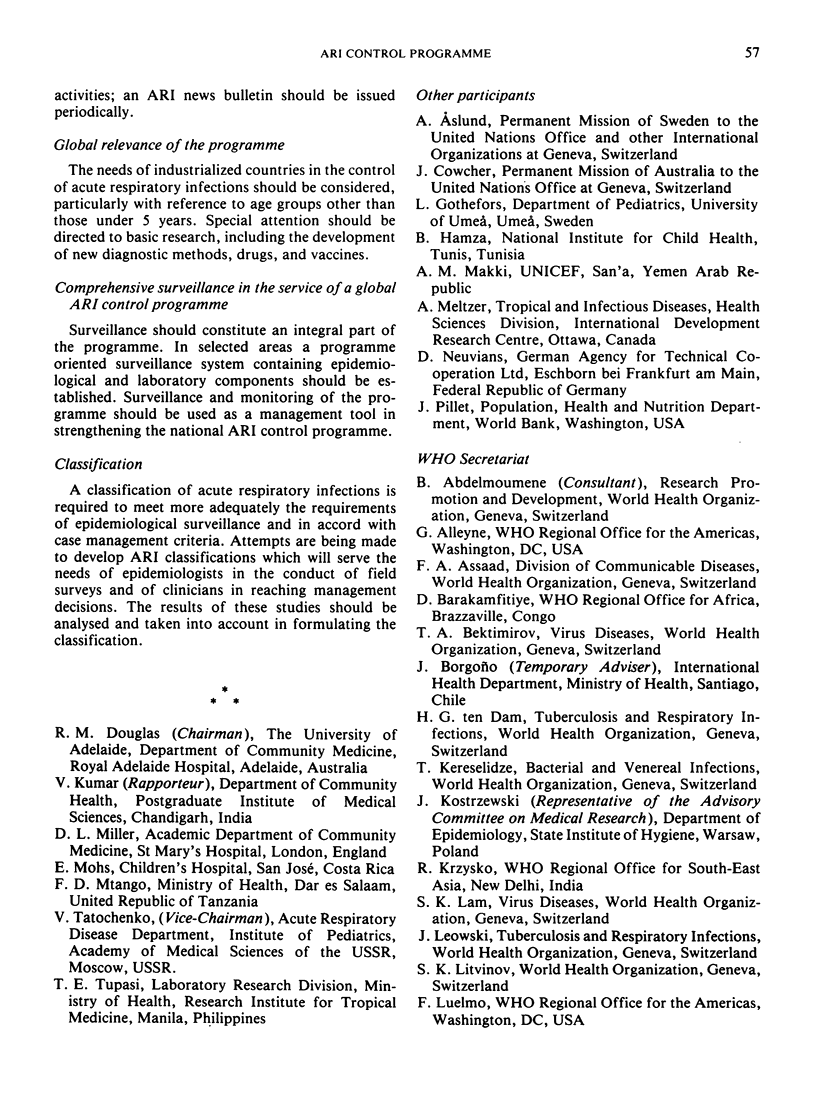Abstract
The unacceptably high mortality related to acute respiratory infections (ARI) in children, recognition of the importance of bacteria in the causation of severe acute lower respiratory infection in developing countries, and the established effectiveness of antimicrobial and supportive treatment in averting death make a strong case for the initiation of an ARI control programme. This should be spearheaded by prototype ARI service activities, delivered through primary health care and backed up by well-coordinated health systems research.
Full text
PDF